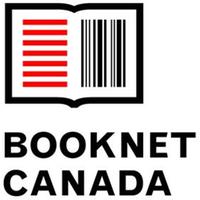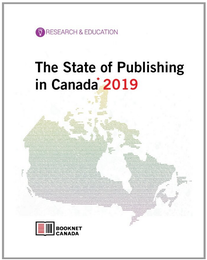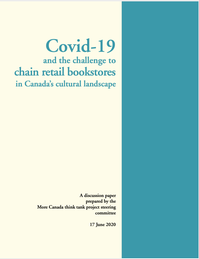Stats matter, but they can also be deceptive. We measure everything, especially in 2020. As a lifelong sports fan, I'm used to keeping score, but I also know when to look beyond the numbers (New York Yankees legend Yogi Berra: "Baseball is 90% mental. The other half is physical."). As a book trade journalist, I process statistics nearly every day, and this year, as a human being, I've added Covid-19 and election polling results to my ongoing scoreboard. It can get more than a little mind-boggling, bordering on obsessive.
Why do we do this to ourselves? The answer is simple enough. We want to know what we're seeing out the front window as we careen down the highway, but we also hope to get hints of what's coming up around that dangerous looking curve just ahead. Can we maintain speed? Should we hit the brakes?
Jack Womack once wrote a novel called Let's Put the Future Behind Us. I loved that title at first sight. The philosophy sums us up pretty well. If we could game the system, I suspect we would try. But we (mostly) can't.
 I've been reading between the numbers in BookNet Canada's sixth edition of The State of Publishing in Canada, which surveyed Canadian English-language publishers "for a snapshot of the industry as of 2019 and pulls in results from other BookNet Canada research--including our Impact of Covid-19 on Reading survey--to provide a fuller picture of the entire publishing landscape."
I've been reading between the numbers in BookNet Canada's sixth edition of The State of Publishing in Canada, which surveyed Canadian English-language publishers "for a snapshot of the industry as of 2019 and pulls in results from other BookNet Canada research--including our Impact of Covid-19 on Reading survey--to provide a fuller picture of the entire publishing landscape."
The end-of-'19 numbers were encouraging, as might be expected in a non-coronavirus landscape. BookNet Canada found that 72% of publishers considered their company to be healthy at the end of last year, and projections for 2020 were generally positive, with most respondents anticipating an increase in e-book and audiobook sales, while 64% thought print book sales would either stay the same or increase.
 According to the Canadian Book Consumer survey, 81% of buyers chose to purchase a print book in 2019, 20% an e-book and 8% an audiobook (a category that rose 41% over 2018). Print books accounted for 85% of sales for small publishers, 88% for mid-size publishers, and 81% for large publishers.
According to the Canadian Book Consumer survey, 81% of buyers chose to purchase a print book in 2019, 20% an e-book and 8% an audiobook (a category that rose 41% over 2018). Print books accounted for 85% of sales for small publishers, 88% for mid-size publishers, and 81% for large publishers.
When asked about industry challenges they would most like to tackle, 63% of publishers said they were most interested in hiring and promoting more diverse staff. While only 31% offered unconscious bias training to staff in 2019, the remainder indicated they would like to be able to offer such training in the future.
And then, suddenly, we descended into the pandemic spring of 2020.
 "Covid-19 has created crisis conditions for Canada's troubled retail bookstore sector, and that has serious implications for Canadian cultural life," according to Covid-19 and the Challenge to Chain Retail Bookstores in Canada's Cultural Landscape, a discussion paper released in June by the More Canada think tank project steering committee.
"Covid-19 has created crisis conditions for Canada's troubled retail bookstore sector, and that has serious implications for Canadian cultural life," according to Covid-19 and the Challenge to Chain Retail Bookstores in Canada's Cultural Landscape, a discussion paper released in June by the More Canada think tank project steering committee.
As might be expected, worlds collide in these two reports. The book landscape that existed at the end of 2019 offered optimistic projections, expectations, anticipations, a whole thesaurus of words looking to a bright-ish book future. But just around that previously mentioned blind, sharp turn ahead was an onrushing convoy of 18-wheelers loaded with Covid-19, about to smash into the whole planet, sales projections and their synonyms be damned.
"Indigo Books, whose bricks and mortar Indigo, Chapters and Coles stores dominate retail bookselling in English Canada, was already in financial difficulty pre-Covid," the More Canada paper noted, adding: "The independent bookstore sector appears to have weathered Covid-19 reasonably well. Stores offered customers home delivery and curb-side pickup. Sales have been low, but the booksellers are surviving."
Survival, not projections, rules for the moment. Stats matter; booksellers matter more.
Bookstores "play a key role in the book supply chain, linking authors and publishers to readers, and are critically important contributors to their communities' cultural life," according to the More Canada paper. "Independent bookstores are particularly valuable to their communities, particularly because they are most successful at connecting Canadian authors to readers. Canadian books currently account for 18-20% of independent bookstore sales in English Canada." The nascent Canadian Independent Booksellers Association was also mentioned as a positive development.
"Books can be and are sold by a wide variety of retailers, both bricks and mortar and online," the paper concluded. "But readers need and value one particular kind of book retailer--bricks and mortar bookstores--over the others. Only in these bookstores can readers discover and access the wide range of books, including the 3,000 new Canadian-authored books published every year in English Canada, that will engage, inform and entertain them. Readers need bookstores. It is the task of Canadian public policy today to find the measures that will ensure that Canadian readers will continue to have Canadian bookstores where they can discover and obtain the books they want to read."

